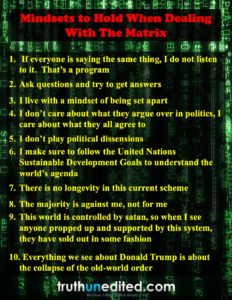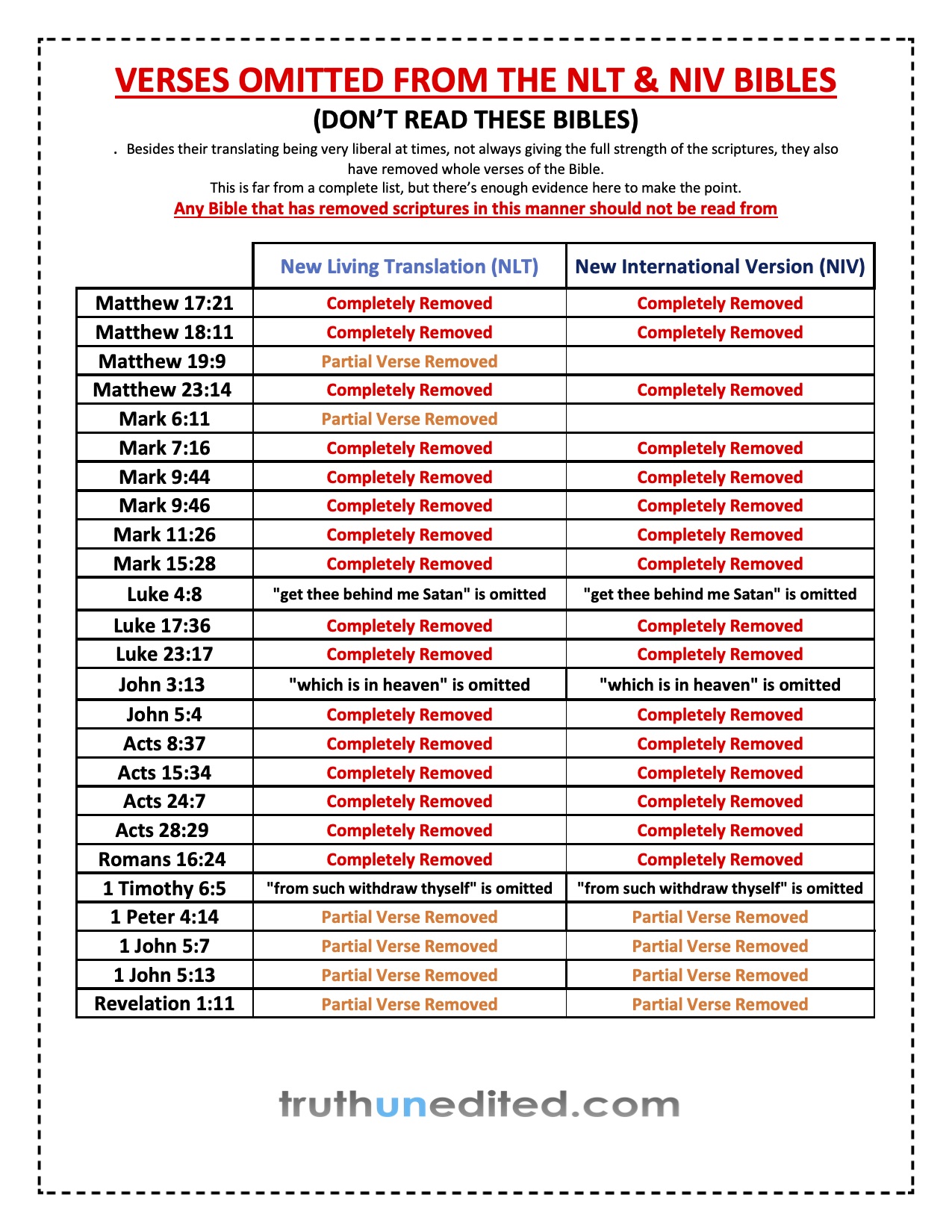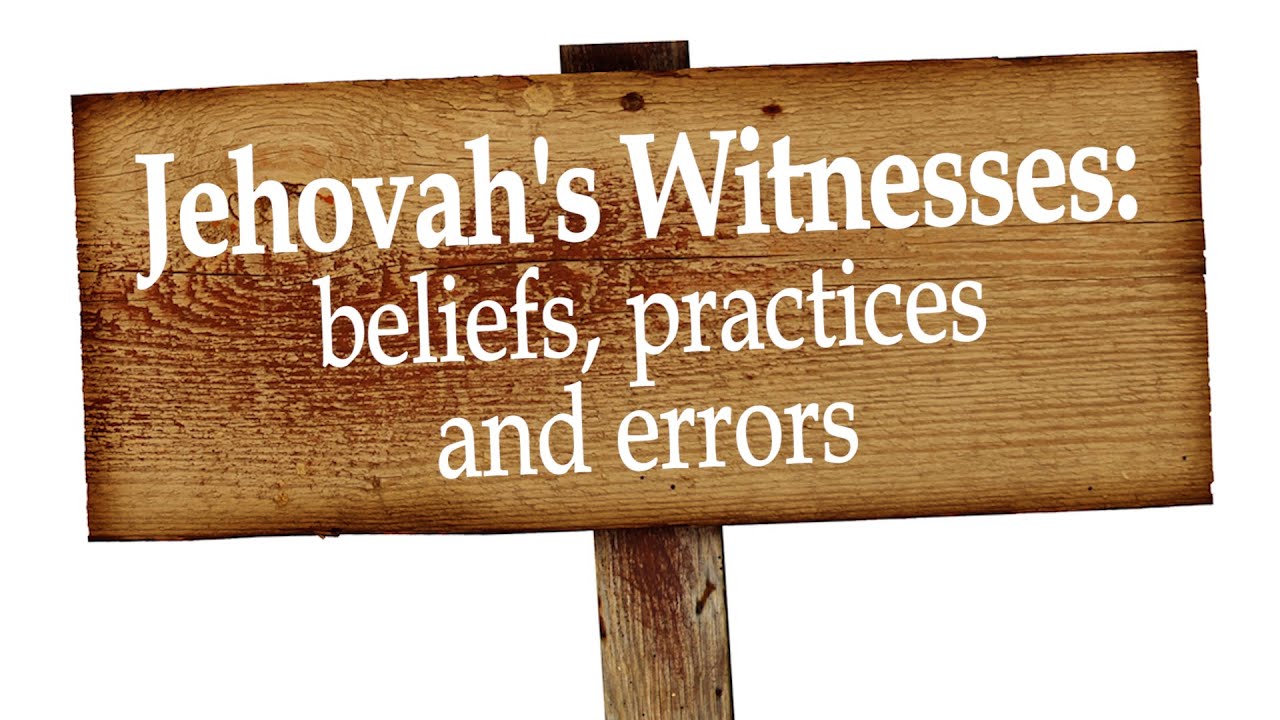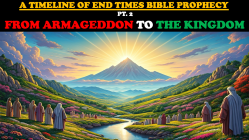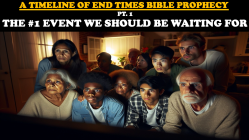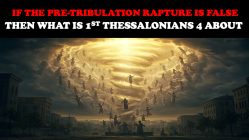In my video, Strategies for Successful Living in the End Times, I went over some Mindsets to hold when dealing with the Matrix. In order to stay in reality I look at things in specific ways and I want to make sure that you have these tips so that maybe it helps you as well to navigate in the matrix. I pray this helps you keep your mind fixed on what’s important and not deceived by the world of lies that surrounds us. hope this blesses you! Be blessed!
- If everyone is saying the same thing, I do not listen to it. That’s a program
- Ask questions and try to get answers.
- I live with a mindset of being set apart.
- I don’t care about what they argue over in politics, I care about what they all agree to
- I don’t play political dissensions
- I follow the United Nations Sustainable Development Goals
- There is no longevity in this current scheme.
- The majority is against me, not for me.
- This world is controlled by satan, so when I see anyone propped up and supported by this system, they have sold out in some fashion.
- Everything we see about Donald Trump is about the collapse of the old-world order
